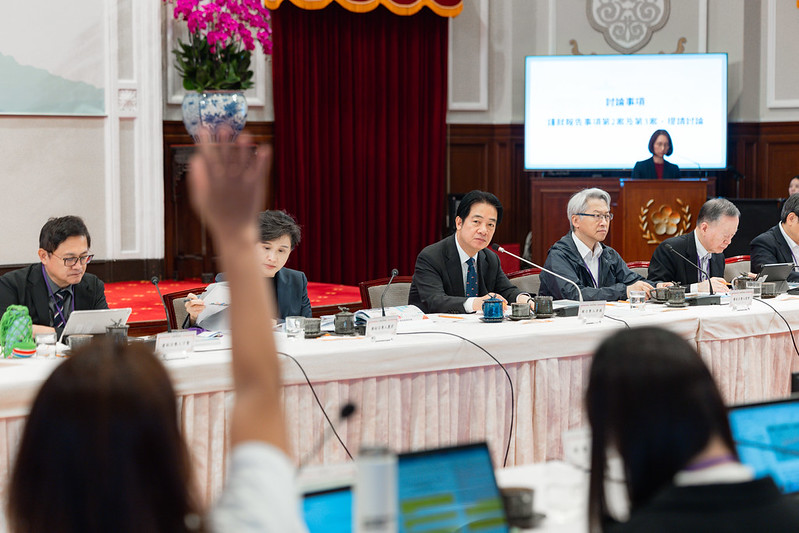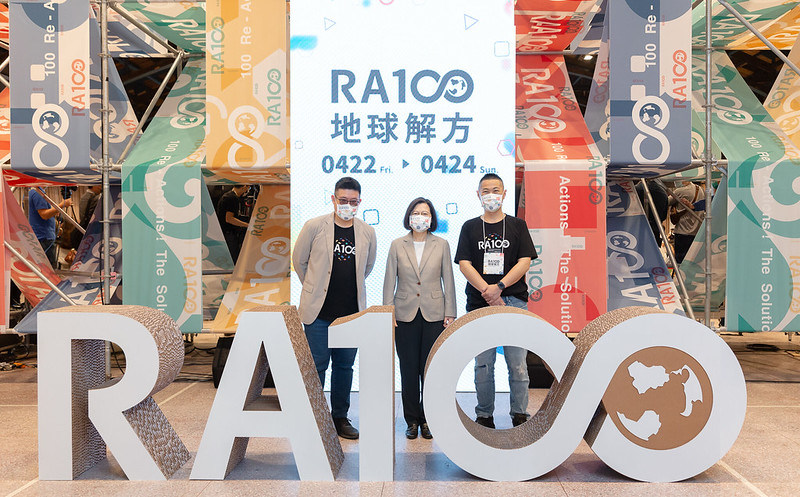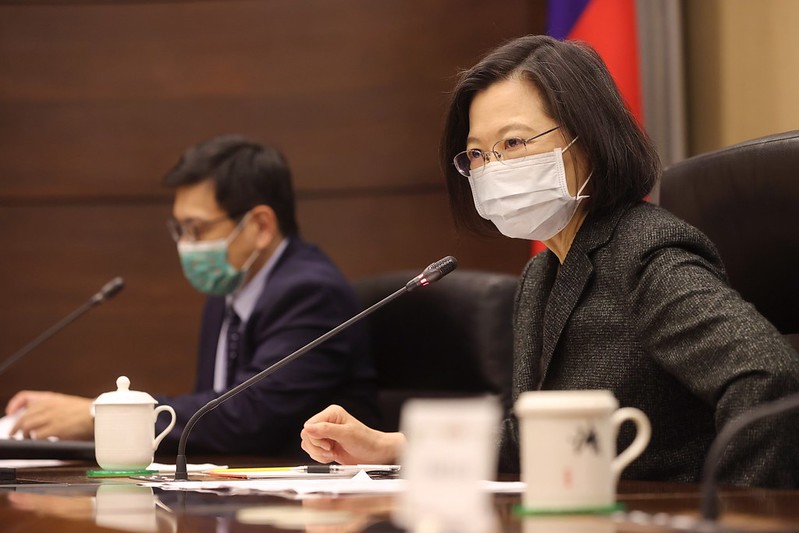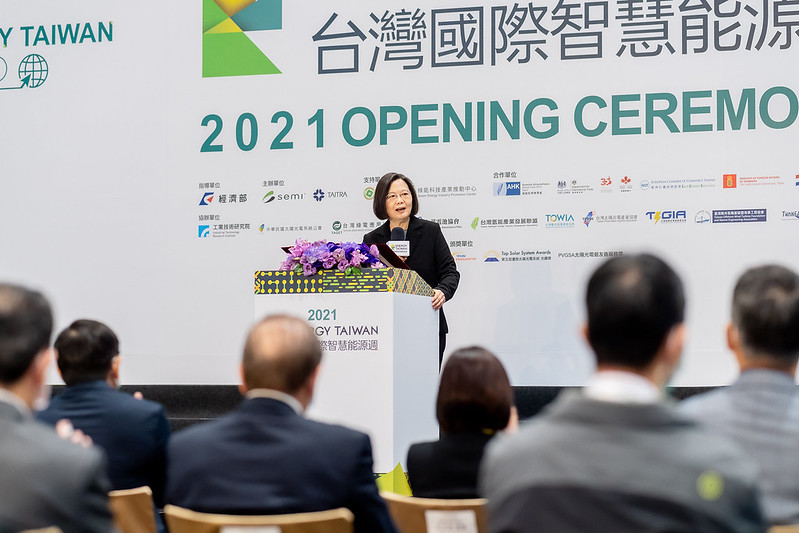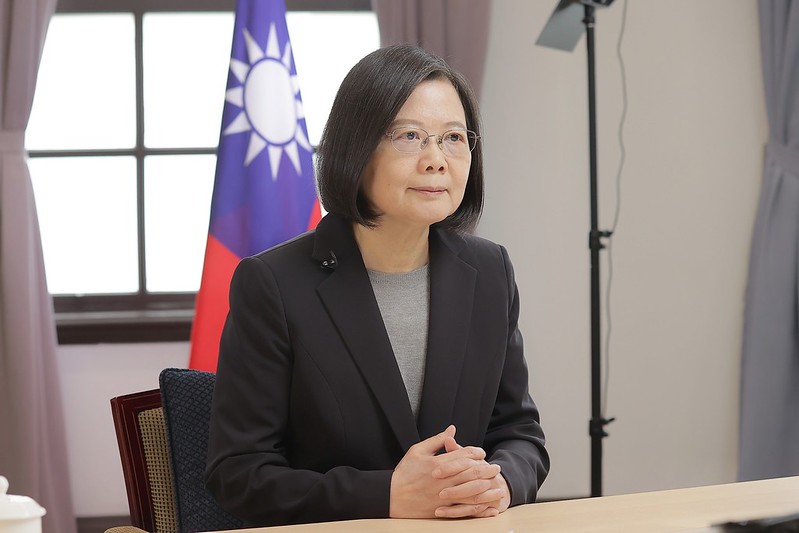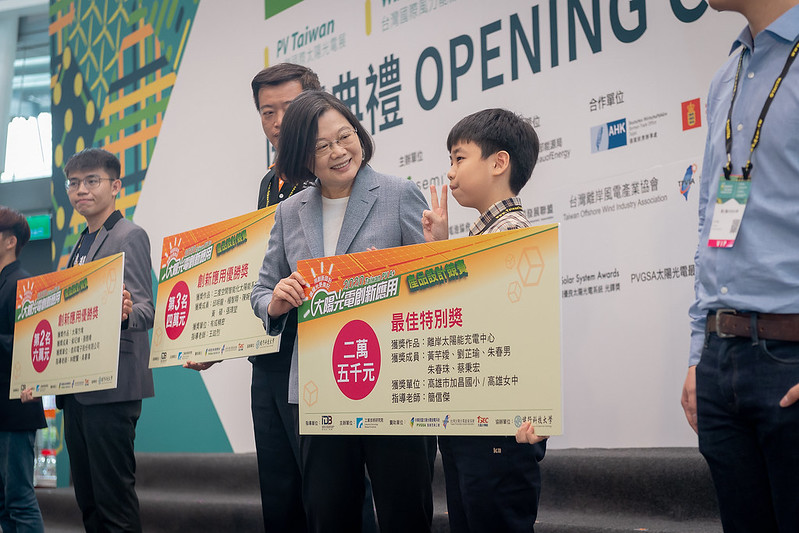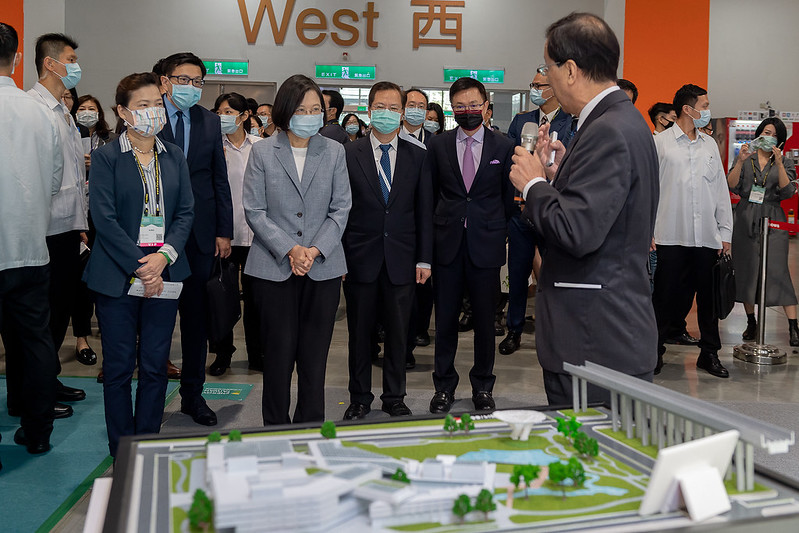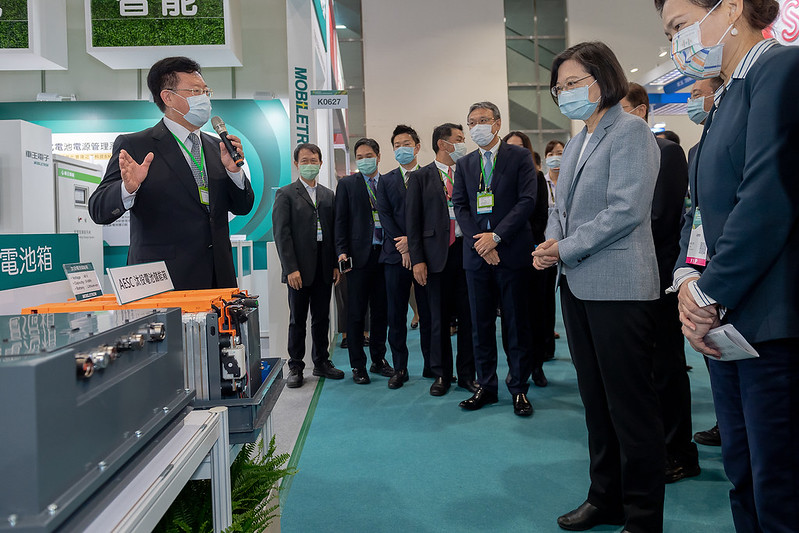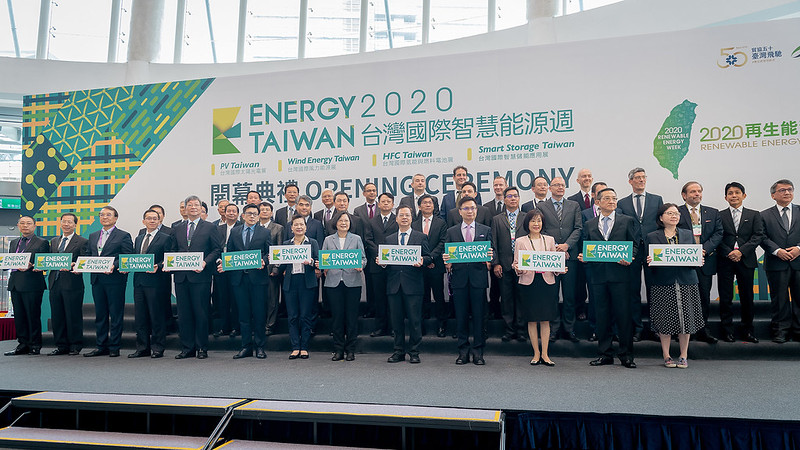News & activities
 News releases
News releases
In remarks at the opening ceremony of Energy Taiwan 2020 on the morning of October 14, President Tsai Ing-wen noted that our efforts to develop renewable energy have begun to yield substantive results, and that by the year 2025 we expect to generate NT$1 trillion in investments, NT$1.2 trillion in output value, and 20,000 job opportunities. We will employ key development strategies to make Taiwan a green energy development center for Asia, the president said.
A translation of President Tsai's remarks follows:
This is the fourth time I have attended Energy Taiwan activities. I want to report that over the past four years, renewable energy has grown by leaps and bounds in Taiwan, and Taiwan has become an important hot spot for international investment in renewable energy. I would like to thank the Taiwan External Trade Development Council (TAITRA) and SEMI for their concerted efforts over the years to develop so many international cooperation opportunities for Taiwan.
This exhibition has over 500 vendor booths, providing many of the most forward-looking energy solutions, and showcasing the dynamic innovation of green energy industry chains. I am sure that bringing together key customers and technical experts in the industry chains, we can spur important cooperation and business opportunities.
Green energy development is a key element of our 5+2 innovative industries plan and Six Core Strategic Industries. To realize our 2025 energy sector transformation goals, we must have stable renewable energy operations.
Our efforts to develop renewable energy over the past few years have begun to yield substantive results. Going forward, by the year 2025 we expect to generate NT$1 trillion in investments, NT$1.2 trillion in output value, and 20,000 job opportunities.
Last year, Taiwan's first offshore wind farm was commissioned off the coast of Miaoli. Between 2020 and 2025, we expect to complete construction of an additional 14 wind farms. The wind farm commissioned last year has attracted groups from Japan and Korea to observe our experience, highlighting Taiwan's role as a leader in Asian offshore wind power development.
In the future, we will employ three key development strategies to make Taiwan a green energy development center for Asia. The first strategy is to propose a clear direction for long-term development to give foreign and domestic vendors more confidence in their long-term investments.
Our wind power development strategy has three phases: the Demonstration Incentive Program, Zones of Potential, and Zonal Development. We have already researched and are drafting zonal development promotion mechanisms. Between 2026 and 2035, we will generate 10 gigawatts, and then create stable, long-term market demand to drive the sustainable development of local supply chains.
Our government will set up the most efficient and stable collaboration mechanism to enhance long-term cooperation with our international partner firms and promote development. We will conduct zonal development business recruitment as soon as possible to ensure that key industry resources like personnel, shipping, and supply production capacity are all in place, so that Taiwan can maintain its status as a leading center of green energy in the Asia-Pacific region.
The second strategy is to plan comprehensive green energy supply chains and complete supporting measures for the industry. We have already assessed our domestic green energy supply chains. In addition to localizing production, we need to take the next step to allow Taiwanese and international companies to join forces and penetrate international markets. We also need to raise the standards of our domestic companies in offshore water foundations, power facilities, wind turbines, and maritime construction to both supply domestic needs and enter international markets.
Besides key green energy supply chains, related financial and market mechanisms will also be established. We are now promoting a national financing guarantee mechanism and green power trading, both of which will contribute to a more comprehensive green energy industry.
The third strategy is to make every effort to ensure a stable supply of green energy, so that Taiwan's high-tech industries will definitely enjoy a competitive advantage as global supply chains are realigned. Strengthening Taiwan's green power competitiveness will also strengthen the future competitiveness of Taiwan's industries. The best example is Taiwan Semiconductor Manufacturing Company (TSMC), which purchased 920 megawatts of green energy this year from Ørsted Wind Power's offshore wind facility. Major international firms are all setting renewable energy usage requirements for their supply chains. Some enterprises even demand that product manufacturing processes use 100% renewable energy.
Boosting renewable energy usage is not only an international trend, but also helps us become part of the Apple, Microsoft, Amazon, and Facebook green energy supply chains, consolidating Taiwan's key status in international supply chains. We will leverage Taiwan's advantages in semiconductors. Employing IoT, AI, and 5G technologies and applications, we will also speed up the implementation of smart power grids, upgrading Taiwan's overall power generation system.
In closing, Taiwan welcomes international partners to take advantage of our strategic position in the Asia-Pacific green energy industry, and penetrate the international green energy market together.
Following her remarks, President Tsai personally presented the Taiwan Excellent PV Awards, PV Innovation Awards, and Top Solar Awards to the awardees and companies. The president also toured the vendor booths of the Ministry of Economic Affairs' Bureau of Energy, TSEC Corporation, Mobiletron, and Ørsted to gain a better understanding of the renewable energy plans and development visions of various industries.
Also in attendance were SEMI Taiwan President Terry Tsao (曹世綸), TAITRA Chairman James C. F. Huang (黃志芳), National Development Council Minister Kung Ming-hsin (龔明鑫), and Economic Affairs Minister Wang Mei-hua (王美花).
